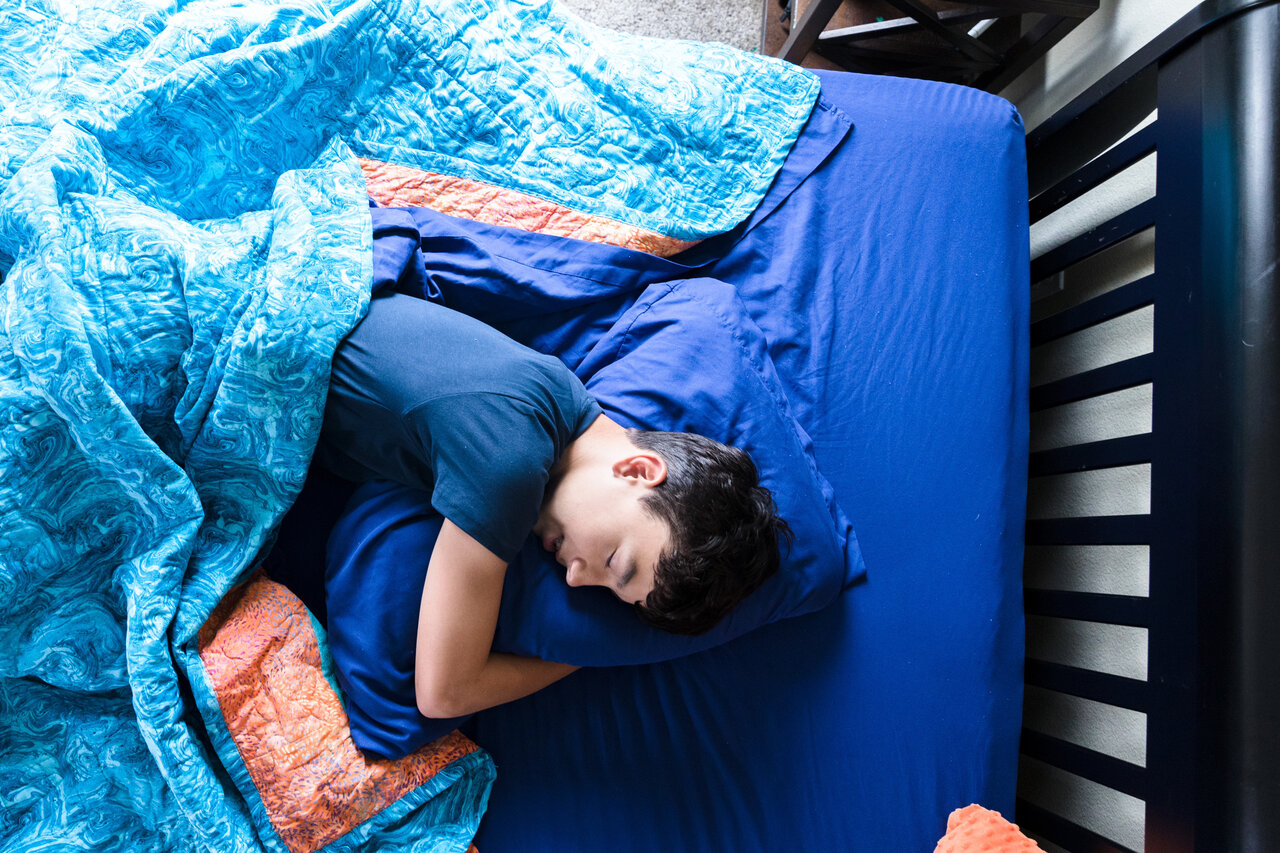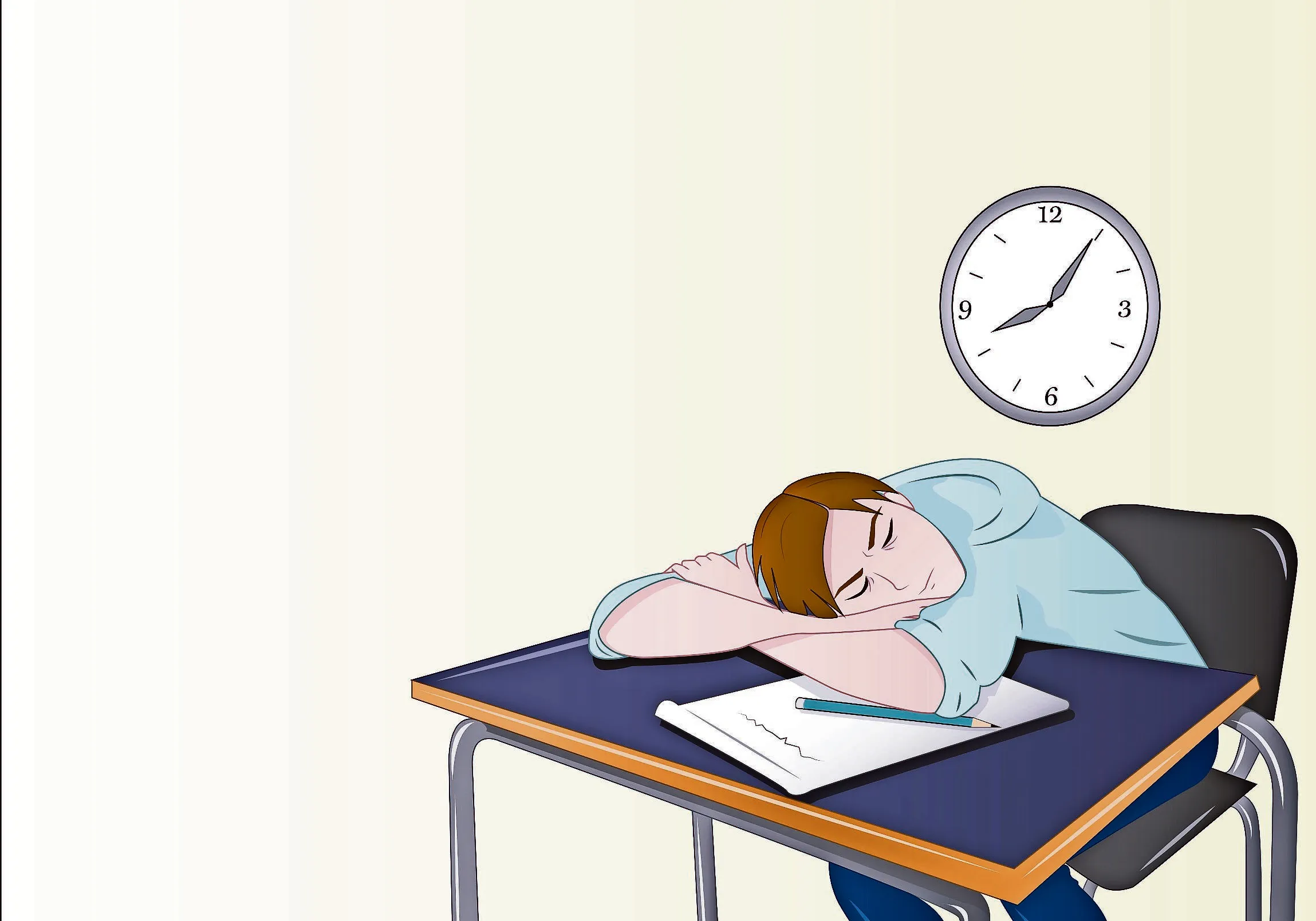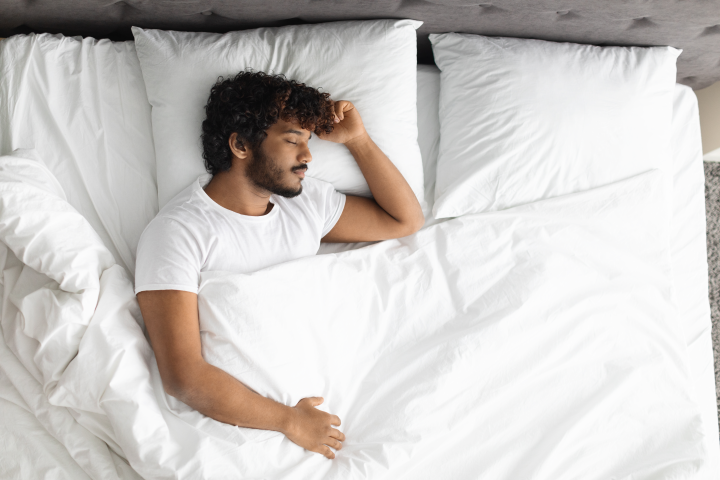14 Nights To Better Sleep
Are you having a hard time getting a restful night’s sleep? Do worries and anxieties keep you awake at night?
Sleep is essential to good physical and mental health, but it can be tough to establish healthy sleep habits. Thankfully, you don’t have to rely solely on medication or expensive therapies. With a few simple lifestyle changes over the course of two weeks, you can get better sleep and feel more energized during the day.
If you’re having difficulty getting quality sleep every night, relax. In 14 nights, with some dedication and consistency, you can finally enjoy the kind of peaceful slumber that will make you look forward to going to bed each night and waking up refreshed each morning. Here are 14 tips that you can try out over the course of two weeks to help improve your sleep hygiene and maximize your nightly repose.
Creative Ways to Improve Sleep in Just 14 Days
The 14-day Better Sleep Challenge is a great way to get back into a regular sleep routine and improve overall health. For many of us, our sleep has been disrupted due to stress, work, or other factors leading to exhaustion. This challenge will help us reset our body’s natural clock and get back on track with better-quality sleep.
To start the challenge, it’s important to create an optimal sleep environment by adjusting the temperature, light, and noise levels in your bedroom. Additionally, developing a consistent sleep routine by going to bed and waking up at the same time each day is essential for success. Finally, incorporating healthy habits such as avoiding caffeine late in the day, exercising regularly, and limiting screen time before bed can help you achieve your goal of better sleep. With dedication and consistency over the course of 14 days, you can expect to see improved energy levels and overall health benefits from this challenge.
Night 1: Set a Bedtime
Having a consistent bedtime is essential for getting enough restful sleep. It’s important to choose a bedtime that allows you to get at least 8 hours of sleep each night. If you’ve been inconsistent with your sleep schedule or have been feeling particularly tired, it’s best to err on the side of more sleep and set an earlier bedtime.
To ensure a good night’s rest, avoid activities like eating, talking on the phone, or using electronic devices in bed. If you find yourself lying awake after 20 minutes, get up and do something relaxing until you feel sleepy again. Establishing a consistent bedtime and aiming for the same amount of sleep each night will help you wake up feeling refreshed and energized.
Night 2: Wash Your Sheets & Pajamas
Having a good sleep hygiene routine is essential for getting a good night’s rest. One of the most important steps in this routine is washing your sheets and pajamas regularly. Doing a load of laundry for sheets, blankets, and pajamas can help keep your bedding fresh and clean. It’s also important to assess the quality of your bed linens and pajamas to make sure they are comfortable enough for you to get a good night’s sleep. Soft, breathable fabrics are best for sleeping in as they will keep you cool and comfortable throughout the night.
Making your bed every morning can also help improve your sleep quality. A made-up bed is more inviting to crawl into at night, which can help you relax and drift off to sleep faster. Studies have found that 62% of people believe that having a clean bedroom affects their sleep quality positively. So taking the time to wash your sheets and pajamas regularly can go a long way in improving your sleep.

Night 3: Create a Sleep-Friendly Environment
Creating a sleep-friendly environment is essential for getting a good night’s rest. To do this, you should start by creating a dark and cool atmosphere in your bedroom. Blackout curtains, sleep masks, or fans can help to block out light and keep the room at a comfortable temperature. Incorporating peaceful sounds and scents like lavender or piano lullaby music can also help to create a calming atmosphere that will put you in the right frame of mind for sleeping. Olfactory cues such as lavender body cream or pillow mists can be used to signal the brain that it is time for sleep.
In addition to creating a dark and cool environment, you should also experiment with different types of clothing to find what works best for you. Lightweight pajamas made from breathable fabrics are ideal for keeping your body temperature regulated throughout the night. Installing blackout curtains or room-darkening shades can also help to minimize light in the sleep environment so that you won ’t be disturbed by outside noise or light.
Night 4: Begin a “Tech Moratorium”
The modern world is filled with technology, and it can be hard to disconnect from our devices. However, it is important to establish a tech moratorium before bedtime in order to get the best sleep possible. This can be done by moving your phone charger away from your bed and setting a time for when the phone should be put away. Additionally, you can replace screen time with activities that help you wind down for sleep such as reading a book or listening to calming music. You can also utilize settings on iPhones or Alexa routines to remind you to get ready for bed.
Screens, such as TVs, laptops, and phones, emit blue light which can interfere with your body’s circadian rhythm. This blue light tricks your body into thinking it isn’t time to sleep yet, so it is important to avoid looking at screens an hour before bedtime in order to get better quality sleep. Establishing a tech moratorium before bedtime is an easy way to ensure that you are getting the rest ful sleep you need.
See also
Night 5: Cut Caffeine After 12 pm
Caffeine is a stimulant that can have a negative impact on sleep quality. To get the best rest possible, it is important to cut out caffeine after 12 pm. This doesn’t mean you have to give up coffee altogether, but just limit it to the morning hours. Instead of reaching for an afternoon latte, try drinking water or herbal tea instead. Sweetened beverages such as fruit drinks and sodas should also be avoided or cut back on.
In addition to cutting out caffeine after 12 pm, there are other ways to boost energy levels without relying on coffee or other caffeinated beverages. Doing some gentle stretches can help increase energy levels naturally and help you stay alert throughout the day. Taking regular breaks from work and getting outside for some fresh air can also help keep your energy levels up without relying on caffeine. Making small lifestyle changes like these can make a big difference in how well you sleep at night and how energized you feel during the day.
Night 6: Get Some Sun When You First Wake Up
Getting some sun when you first wake up can be a great way to start your day. Exposure to light in the morning helps reset your body clock, which is important for regulating your circadian rhythm. This can help reduce stress levels and improve overall health. Self-care activities like sitting by a bright window, taking coffee on the patio, or going for a walk with your dog are all beneficial ways to get some sun when you first wake up.
Light therapy is also an effective way to recalibrate your circadian rhythm and get some sun when you first wake up. Open the curtains in the morning to let in natural light and sit outside or take a walk with your dog if possible. Doing this within an hour of waking up for 30 minutes can help treat circadian rhythm disorders and improve sleep quality at night. Getting some sun when you first wake up is an easy way to start off your day on the right foot and promote better health overall.

Night 7: Go for a Walk (During the Day)
Taking a walk during the day can be an effective way to improve sleep quality at night. Walking has many health benefits, such as improved mental and physical wellbeing, and it can help to reduce stress levels. Allocating just five minutes to an hour of time for a walk can make a difference in your sleep quality. Light therapy is also beneficial; this involves getting some light to your retinas for 30 minutes within an hour of waking up. This helps recalibrate your circadian rhythm and reduce stress levels.
Incorporating peaceful activities into your daily routine is also important when it comes to improving sleep quality. Going for a walk with your pet or sitting by a bright window are two great ways to do this. Not only will these activities help you relax, but they will also provide you with much needed natural light exposure which is essential for maintaining healthy sleep patterns. Taking the time each day to go for a walk or sit by the window can have long-term positive effects on your sleep quality.
Night 8: Do a “Brain Dump” in Your Journal
Brain dumping is a great tool to help reduce stress and anxiety before going to bed. It involves writing down all of your thoughts, worries, and feelings in a journal or notebook. This can help clear the mind and make it easier to fall asleep. Brain dumping is an effective way to get rid of anxious thoughts that may be keeping you up at night. Writing down everything that’s going on in your head can help you process your emotions and gain clarity on what’s causing you stress or worry.
Journaling is a great way to relax before bed, but brain dumping takes it one step further by emptying out all of your thoughts onto paper. It allows you to take a step back from the situation and look at it objectively. By writing down all of your worries, fears, and anxieties, you can begin to work through them in a more constructive manner. Brain dumping also helps create space for positive thinking which can lead to better sleep quality overall.
Night 9: Add in a Warm Night Time Shower
Taking a warm shower or bath before bed can be an effective way to improve sleep. Studies have found that the optimal temperature for a pre-bedtime shower is between 104 to 108 degrees Fahrenheit. This temperature range helps cue the body that it’s time to sleep, and can help relax the muscles and mind. Aromatherapy, such as lavender body wash, can further aid in relaxation and sleep. Washing the soles of the feet with lavender is thought to be especially helpful in this regard.
The benefits of taking a warm night time shower are backed up by science. A study of 17 studies found that this bedtime ritual is an effective way to improve sleep quality and duration. It’s important to note that taking a warm shower roughly 90 minutes before bedtime is key for maximum effectiveness; if taken too close to bedtime, it may actually have the opposite effect and make it harder to fall asleep. So if you’re looking for a way to improve your sleep quality, adding in a warm night time shower may be the answer.

Night 10: Practice Some Pre-Bed Yoga or Gentle Stretching
Pre-bed yoga or gentle stretching can be a great way to wind down before bed. It helps to release stiffness and tension, center the body and mind, and prepare for sleep. FitOn has an entire tab dedicated to these activities, so you can find something that fits your needs. Exercise during the day can also help you fall asleep more quickly. Endorphins released during exercise may keep some people awake if done right before bed, so it’s best to try to exercise two hours before going to bed.
Yoga poses like Child’s Pose, Cat/Cow Pose, and Reclined Twist are all great options for pre-bed yoga or gentle stretching. These poses help relax the body and mind while releasing any tension that has built up throughout the day. You can also add in some deep breathing exercises or guided meditations for an even more calming effect. Adding pre-bed yoga or gentle stretching into your nightly routine will help you get a better night ’s sleep.
Night 11: Low Impact Workout (During the Day)
Regular exercise is an important part of a healthy lifestyle and can help improve sleep quality. Low-impact exercises such as Pilates, Yoga, and Tai Chi are particularly beneficial for getting a good night’s rest. Taking a 10-minute walk or incorporating exercise into your daily routine can help you get the physical activity you need to stay healthy and promote better sleep. Avoiding caffeine after 12 pm is also important for getting a good night’s rest.
Incorporating low-impact exercises into your day can be easy and enjoyable. Taking the stairs instead of the elevator or walking around the block at lunchtime are simple ways to get some exercise during the day without having to dedicate too much time or energy. Doing some light stretching before bed can also help relax your body and prepare it for sleep. Regular exercise helps you sleep better, so make sure to find time in your day to fit in some low-impact activities that will benefit both your physical health and mental wellbeing.
Night 12: Meditate
Meditation is a great way to relax and get a good night’s sleep. Sleep-inducing meditations can help you count some sheep and drift off into a peaceful slumber. There are many different types of meditations available, such as the 20-minute Yoga Nidra sleep meditation or the 10-minute Sleep Well Meditation. Mindfulness meditation is an effective way to battle anxiety and can be practiced by finding a comfortable seated position and paying attention to your breath. Acknowledge any worries that enter your mind, then let them go and come back to the present moment.
Meditation can also be used during the day to reduce stress levels and increase focus. It can help you become more aware of your thoughts, feelings, and emotions so that you can better manage them. Taking just a few minutes each day for meditation can have profound effects on your overall wellbeing. Whether it’s before bedtime or during the day, taking time out for yourself to practice meditation will help you get a better night’s sleep.
Night 13: Try Magnesium or Tea
Magnesium is a mineral that can be used to help with sleep. It helps relax the body and mind, reducing muscular tension, improving mood, aiding digestion, and promoting better sleep. Magnesium can be taken in supplement form or added to foods like nuts and seeds. It is sometimes used in combination with melatonin for an even more powerful effect.
Another way to promote better sleep is through herbal teas such as lavender or valerian root tea. These herbs have calming effects that can help reduce stress and anxiety while promoting relaxation. A 14-day challenge can help determine which method works best for you. Drinking a cup of tea before bedtime or taking magnesium supplements may be just what you need to get a good night’s rest.
Night 14: Put it All Together
Creating a healthy sleep routine is essential for getting a good night’s rest. Establishing a morning and daytime routine can help set the tone for the day and make it easier to wind down at night. This could include getting early morning light, going for a walk, and doing low-impact exercise. Creating a calming sleep space with fresh sheets and pajamas, soothing scents and sounds, and a cool and dark ambiance can also help you relax before bedtime. Two hours before bedtime, taking a warm shower, doing stretches, writing in a journal, meditating, and sipping herbal tea can all help you unwind.
Walking during the day has many health benefits that can improve your sleep quality at night. Walking helps to reduce stress levels which can lead to better sleep quality. Allocating five minutes to an hour of time for a walk each day can make a difference in your sleep quality. Not only does walking have physical benefits such as improved cardiovascular health , but it can also help to reduce stress and anxiety levels.
Finally, make sure to get enough sleep each night. Aim for seven to nine hours of sleep each night and try to go to bed at the same time every night. This will help your body establish a healthy circadian rhythm and promote better sleep quality.
Conclusion
In conclusion, getting a better night’s sleep is possible with the right strategies. Establishing a healthy sleep routine and taking time out for yourself to practice relaxation techniques can help you get the restful sleep you need. Taking magnesium supplements or drinking herbal teas before bedtime can also help promote better sleep quality. Additionally, walking during the day has many health benefits that can improve your sleep quality at night. Finally, make sure to get enough sleep each night and go to bed at the same time every night. With these tips, you can start getting a better night’s sleep in no time.













Leave a Reply